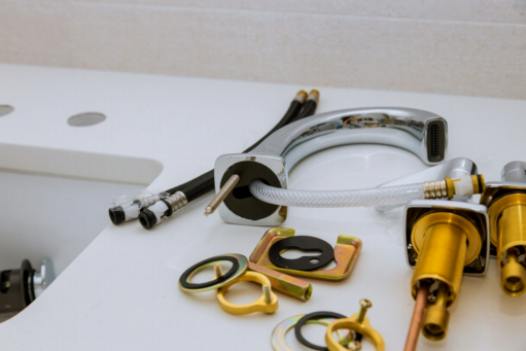Clogged pipes can be a real nuisance for homeowners, leading to slow drainage and potential water damage. Understanding the causes of clogged pipes and learning essential DIY maintenance tips can help you keep your plumbing system in top condition. From routine maintenance and natural cleaners to unclogging techniques and proper disposal practices, there are several ways to prevent and address clogged pipes without having to rely on harsh chemical cleaners or professional plumbers. In this article, we will explore essential tips for DIY maintenance to say goodbye to clogged pipes for good.

Understanding the Causes of Clogged Pipes
It is important to understand the common causes of clogged pipes in order to effectively prevent and address this issue. One common cause of clogged pipes is the accumulation of hair, soap scum, and other debris in bathroom drains. In kitchen sinks, food particles, grease, and oil can build up and lead to blockages. Additionally, mineral deposits from hard water can also contribute to clogged pipes. By being aware of these causes, homeowners can take proactive steps to prevent clogs and maintain clear drains throughout their home.
Routine Maintenance for Clear Drains
One of the most effective ways to prevent clogged pipes is to implement a routine maintenance schedule for your drains. This can include flushing hot water down the drains on a weekly basis to help remove any buildup of grease and soap scum. Additionally, using a drain strainer to catch hair and debris before it goes down the drain can also help prevent clogs from occurring. By staying on top of routine maintenance, you can proactively prevent the need for more intensive unclogging efforts in the future.
Using Natural Cleaners as a Preventive Measure
Using natural cleaners as a preventive measure is an effective way to keep your pipes clear and avoid clogs. Harsh chemical cleaners can be damaging to your pipes and the environment, so opting for natural cleaners is a safer and more sustainable choice. Ingredients such as baking soda, vinegar, and lemon juice can be used to create homemade cleaners that effectively break down buildup and keep your drains flowing smoothly. By incorporating natural cleaners into your regular cleaning routine, you can proactively prevent clogged pipes and the need for more intensive unclogging methods.
Techniques for Unclogging Pipes Without Chemicals
When it comes to unclogging pipes without the use of chemicals, there are a few effective techniques that DIY enthusiasts can try. One common method is using a plunger to create suction and hopefully dislodge the blockage. Another technique is using a plumbing snake or auger to physically remove the clog from the pipes. Additionally, some homeowners may opt to use a wet/dry vacuum to suck out the blockage from the drain. These non-chemical methods are often successful in unclogging pipes and are a safer alternative to using harsh chemicals.
Proper Disposal Practices to Avoid Blockages
One of the main causes of blockages in pipes is the improper disposal of waste materials. Items such as grease, oil, food scraps, and non-biodegradable products should never be disposed of down the drain. It is important to educate household members on what materials can and cannot be disposed of in the sink or toilet to prevent blockages. By implementing proper disposal practices, homeowners can avoid the inconvenience and expense of dealing with clogged pipes in the future.
Tools and Equipment for DIY Plumbing Tasks
When it comes to DIY plumbing tasks, having the right tools and equipment is essential for successfully maintaining and unclogging pipes in your home. Some of the basic tools you'll need include a plunger, plumber's snake, pipe wrench, adjustable wrench, and a pair of tongue-and-groove pliers. These tools will help you with tasks such as clearing clogs, tightening or loosening fittings, and making basic repairs.
In addition to these basic tools, it's also helpful to have a toilet auger, which is specifically designed for clearing clogs in toilets, and a drain auger for clearing clogs in sinks and tubs. A hacksaw, tubing cutter, and a propane torch may also be necessary for more advanced plumbing projects.
When it comes to equipment, having a good set of drain cleaning brushes, as well as a wet/dry vacuum, can be helpful for maintaining clean drains and clearing minor clogs. Additionally, having a pipe inspection camera can be useful for identifying the cause of more stubborn clogs or identifying potential issues within your pipes.
By having these tools and equipment on hand, you'll be better equipped to handle routine maintenance and minor plumbing issues in your home. However, it's important to remember that for more complex or serious plumbing problems, it's best to leave it to the professionals and call a licensed plumber.
When to Call a Professional Plumber
For more complex issues such as extensive blockages, hidden leaks, or sewer line problems, a licensed plumber with specialized tools and expertise may be necessary. Additionally, if DIY efforts have not been successful in resolving the issue, it is best to seek professional help to avoid further damage to the plumbing system. Ultimately, knowing when to call a professional plumber can save time, money, and frustration in the long run.
